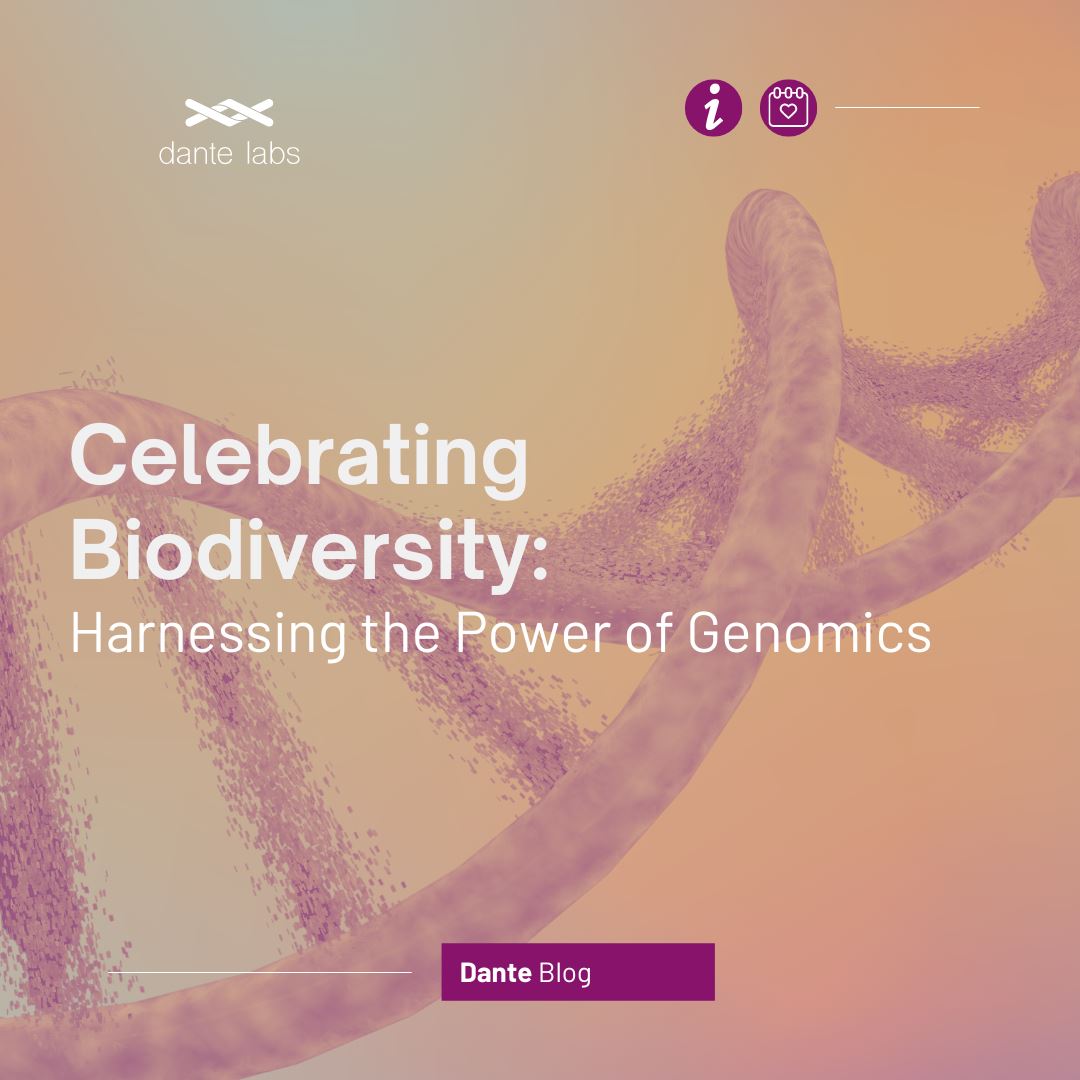
Celebrating Biodiversity: Harnessing the Power of Genomics
Share
Introduction
As we celebrate the International Day of Biological Diversity, it's essential to reflect on the pressing need for innovative solutions to protect and preserve our planet's rich biodiversity. From the tiniest microorganisms to majestic animals and towering trees, every living organism plays a unique role in the intricate web of life. With countless species facing extinction, conservation efforts have never been more critical. In this blog post, we'll explore how genomic approaches are transforming conservation practices, offering new hope for endangered wildlife.
Understanding the Challenge
In today's world, biodiversity faces numerous threats, including habitat loss, climate change, pollution, and invasive species. The loss of biodiversity not only impacts ecosystems but also poses significant challenges for human well-being, food security, and livelihoods. As stewards of our planet, it's our responsibility to protect and preserve biodiversity for future generations.
Genomic Solutions: A Game-Changer for Conservation
One of the most powerful tools in our conservation toolkit is genomics. DNA analysis has revolutionized our understanding of biodiversity and has become an indispensable tool for conservation efforts. By analyzing the genetic makeup of different species, including humans, animals, plants, insects, and microbiomes, we can uncover invaluable insights into their evolutionary history, genetic diversity, and adaptation mechanisms.
Enter genomic selection, a cutting-edge strategy that leverages genetic information to promote adaptation in imperiled species. By identifying genetic traits associated with resilience to environmental stressors, such as infectious diseases or habitat loss, scientists can inform breeding programs to prioritize adaptive traits. This targeted approach ensures that populations are better equipped to withstand evolving threats, safeguarding their long-term survival.
Genomics for Wildlife Conservation
Conservation breeding programs play a crucial role in preventing the extinction of endangered species. However, these programs face challenges in ensuring the survival of species in their natural habitats. Genomic approaches, such as genomic selection, have emerged as game-changers in conservation biology. By leveraging genomic information, we can predict and select individuals with genetic traits that make them better suited to survive threats such as climate change and diseases.
Case Studies: From Cheetahs to Red Squirrels
The Indian cheetah and the red squirrel are two species facing significant conservation challenges. The Indian cheetah's population decline, exacerbated by factors like poaching and habitat loss, highlights the urgent need for genetic conservation measures. Similarly, the red squirrel's struggle against the invasive gray squirrel and squirrel pox virus underscores the importance of genetic management to maintain genetic diversity and resilience.
In both cases, genetic analysis has provided valuable insights into population dynamics and genetic health, informing conservation strategies such as breeding programs and habitat restoration efforts.
Genetic Engineering for Plant Conservation
Plant genetic engineering offers a promising avenue for enhancing plant resilience and biodiversity conservation. By introducing traits like pest resistance and disease tolerance, genetic engineering can help plants adapt to changing environmental conditions and threats. For example, transgenic field pea plants with pea weevil resistance demonstrate the potential of genetic engineering to address agricultural challenges and promote biodiversity.
Empowering Conservation with Genomic Services
At Dante Labs, we are dedicated to unraveling the richness of biodiversity through our state-of-the-art genomic services with which we can analyze animals, plants, insects or microbiomes, allowing us to explore and understand the intricate tapestry of life.
Our expertise focuses on the analysis of human DNA, which is crucial for the prevention and diagnosis of diseases, even the rarest ones. Each person's DNA is unique and contains valuable information about individual predispositions and health risks. By analyzing human DNA, we can identify genetic markers associated with various health conditions, enabling individuals to make informed decisions about their health and well-being. Just as genomic analysis informs conservation strategies for endangered species, it plays a crucial role in personalized medicine, revolutionizing health care and disease management. At Dante Labs, we are committed to harnessing the power of genomics to promote positive change and protect human and ecological diversity.
Together, we celebrate biodiversity and work toward a future where every species thrives in harmony with nature.
Conclusion
As we mark the International Day of Biological Diversity, we've explored how genomics revolutionizes biodiversity conservation. From wildlife to human health, DNA analysis is key. At Dante Labs, we're dedicated to unlocking genetic insights for both conservation and personalized medicine, shaping a future where every species thrives. Let's preserve our planet's diversity, together.
